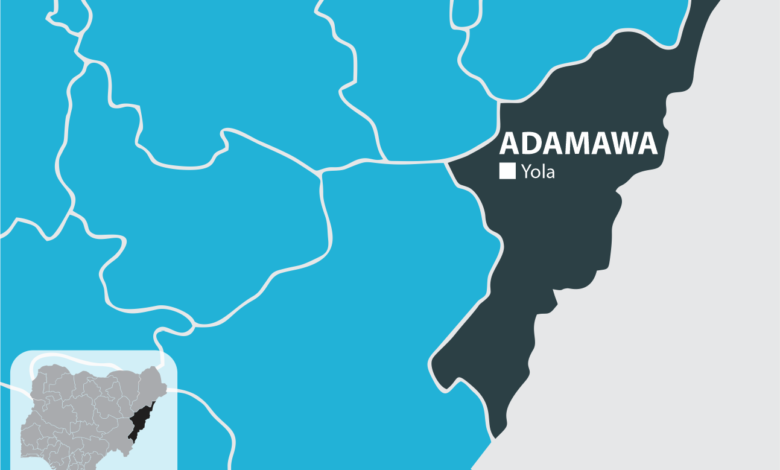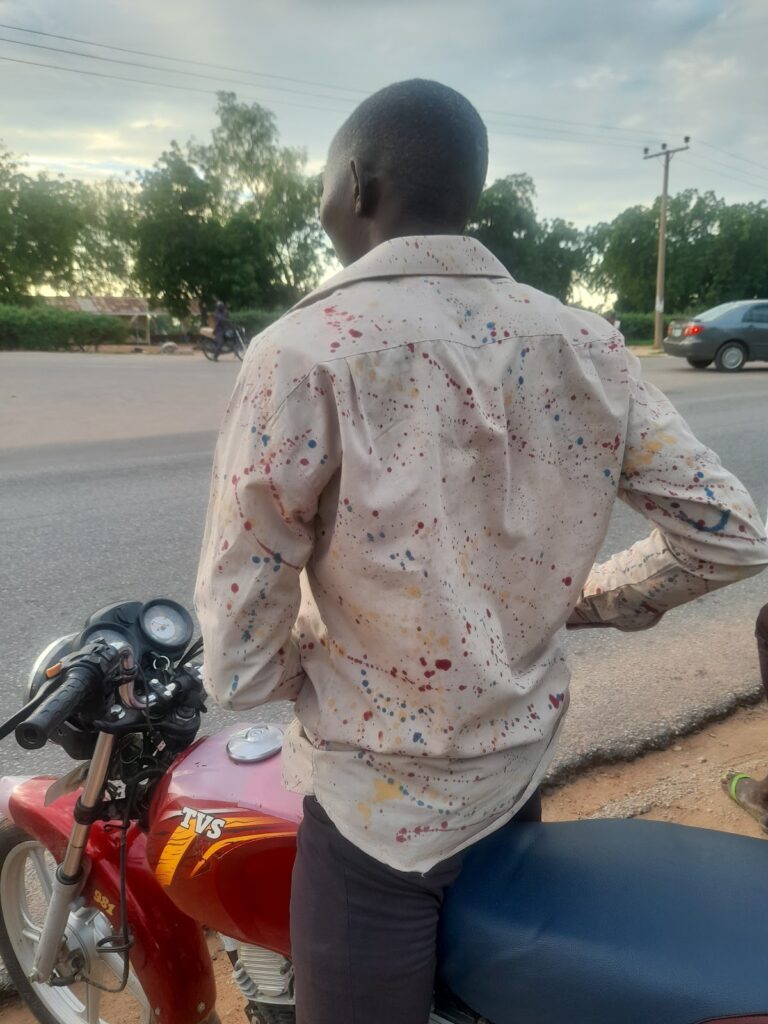Cost Of Living Crisis: The Impact of Fuel Hike On Adamawa Residents
In Adamawa, Nigeria, the fuel price hike hangs over different communities like a dark cloud, casting a shadow on the cost of living and stirring ripples throughout various sectors.

Inflation caused by the removal of the fuel subsidy has hit many residents of Adamawa in North East Nigeria very hard.
Before President Bola Tinubu announced the removal of fuel subsidy on May 29, Shehu Bala, a father of five who resides in Badarisa, Girei local government area of Adamawa explained that he used to spend ₦50 to board a motorcycle from his house to the bus stop.
But the cost has now jumped to ₦150.
Also, a measure (mudu, as it is popularly called in the state) of maize which used to be sold for ₦800 is now sold for ₦1,700, a development making it increasingly difficult for him to provide for his family.
“We are really suffering. I hope the government can look into this and bring a positive shift because it is really not easy,” he told HumAngle.
“I can’t afford to buy what I used to buy before because my income remains the same despite the high cost of living. I’m just thankful for having an understanding family, despite being not able to care for all their needs, they have been supportive.”
Subsidy removal
The bold decision by the Nigerian President to remove fuel subsidies aimed to address long-standing economic challenges but inadvertently resulted in significant hardships for communities across the nation.
The price of petrol moved from ₦194 per litre to over ₦600.
In Adamawa, the fuel price hike hung over different communities like a dark cloud, casting a shadow on the cost of living and stirring ripples throughout various sectors.
Among those deeply affected are parents, students, schools, market women and motorists.
In July, as the situation became increasingly unbearable for many, large crowds targeted government warehouses and grain stores in Adamawa, looting aggressively.
The crowds were dispersed by soldiers’ gunfire
Like Bala, Madam Salama, a single mother of three living at Doubeli in Yola North area of Adamawa also expressed her frustration.
“The current situation is alarming. I’ve cut several things from my monthly purchases. My focus now is to afford my children’s school fees and provide food for them. Even at that, it has not been easy.
“I thought they said removing subsidies will benefit us? Do we have to die before that happens?”
Impact on education
The hike in fuel price has also significantly affected educational institutions across Adamawa. For instance, Justina Senguro, the headmistress of Bachure Primary School in Yola shed light on the consequences faced by her school.
She said students’ enrollment has decreased as parents struggle to afford the increased transportation costs of bringing their children to school.
“School attendance has become erratic as some families prioritise managing their household expenses over education,” she told our reporter.
“Even our teachers now miss classes at times as they struggle to afford the increased transportation costs.”
Asked if there’s anything the school is doing to address the challenges, Justina responded saying there is little that can be done at her end.
Meanwhile, she recently had a meeting with her staff to develop a timetable (shift) for her staff so as to manage the costs of transportation, while ensuring that academics are not affected.
Also, Emmanuel Bappatu, principal of Lutheran Junior Seminary (LJS) in Mbamba, said teaching staff face struggles to meet their daily needs, earning stagnant salaries amid skyrocketing living costs.

Dauda Musa, a Junior Secondary School (JSS 3) student of Rochas Foundation Academy, in Girei, shared his struggles to attend school regularly, as the exorbitant transportation costs make it a constant challenge.
“From Demsawo where I live to the school is ₦300, so I spend ₦600 to and fro every day for five days, amounting to ₦3,000 every week. That is really a lot and I can’t change my school because this school is free. It is really hard for me, so I have to skip going to school at times when I don’t have transport. My parents are late and I stay with my aunt.”
More complaints
Kabiru Adamu, a civil servant and resident of Nassarawo, Jimeta-Yola, said the strain of limited resources affects his ability to meet basic needs, and negatively impacts his overall work performance and job satisfaction.
“My salary is still the same. I collect ₦48,000 as my monthly salary and I have to battle with transportation to work, pay for electricity, pay my children’s fees and still buy food. The prices of everything have increased but my salary remains the same.”
A petty business owner, Saratu Yusufu also said the rising cost of living has led to low sales.
“All of these have hindered my ability to restock.”
Tukur Bazza, a motorcyclist who operates around the Gotel-junction to Lainde metropolis, laments the decrease in passengers as people can no longer afford transportation fees.
“The constant fuel price hike has made it increasingly challenging for transport operators to sustain our businesses, causing financial strain and desperation.”

Asked how he manages to take money home to meet the needs of his wife and children, Tukur said he sometimes improvises by accepting a lower amount from passengers while he risks running at a loss.
Gov’t action
In a bid to mitigate the challenges faced by citizens, Adamawa State Governor, Ahmadu Fintiri, on July 27, announced an increment of ₦10,000 to the monthly salary of government workers and pensioners for a period of six months, starting from Aug. 2023.
The government has also announced the provision of buses for local transportation in the 21 local governments of the state at a subsidized rate.
Fintiri also said he is committed to providing 70 trucks of maize and 20 trucks of rice that will be distributed to the citizens of the state at a subsidised rate.
Economists say the removal was necessary as the government is saving more money and if well utilised, it could be used to provide necessary investment in mass transit and infrastructure to make it accessible to all.
This report was produced under the 2023 HumAngle Accountability Fellowship.
Support Our Journalism
There are millions of ordinary people affected by conflict in Africa whose stories are missing in the mainstream media. HumAngle is determined to tell those challenging and under-reported stories, hoping that the people impacted by these conflicts will find the safety and security they deserve.
To ensure that we continue to provide public service coverage, we have a small favour to ask you. We want you to be part of our journalistic endeavour by contributing a token to us.
Your donation will further promote a robust, free, and independent media.
Donate HereStay Closer To The Stories That Matter




